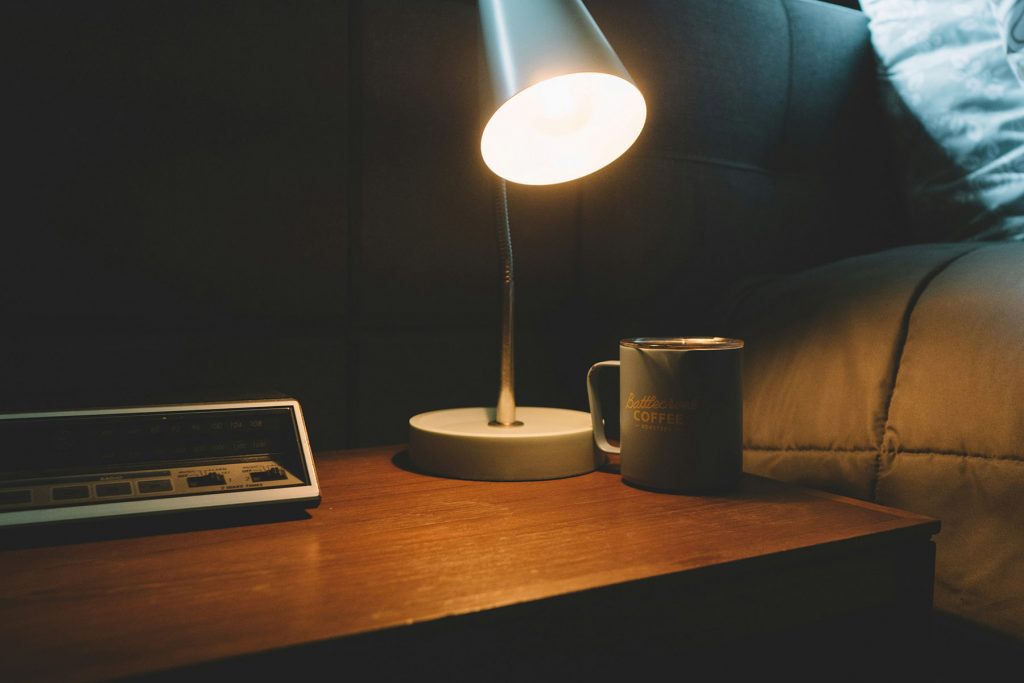Many of us rely on a morning cup of coffee to kick-start the day and enjoy a glass of wine to unwind at night. While caffeine and alcohol are socially and culturally accepted, they have a significant impact on your sleep quality—often more than people realise.
In this post, we’ll explore how caffeine and alcohol affect your sleep cycles, why they can leave you feeling groggy even after a full night in bed, and what you can do to minimise their disruption to your body’s natural rhythms.
Understanding Sleep Cycles
Before diving into the effects of these substances, it’s important to understand how sleep works. Your sleep is divided into several cycles, each lasting roughly 90 minutes and containing multiple stages:
-
NREM Stage 1 – Light sleep
-
NREM Stage 2 – Deeper relaxation, lowered body temperature
-
NREM Stage 3 – Deep, restorative slow-wave sleep
-
REM Sleep – Rapid Eye Movement, where dreaming and memory consolidation occur
Healthy sleep involves moving through these stages multiple times a night. Disruption at any point can lower your sleep quality and leave you feeling less rested.
Caffeine: A Stimulant That Lingers
How It Works
Caffeine is a central nervous system stimulant found in coffee, tea, soft drinks, energy drinks, and even chocolate. It works by blocking adenosine, a neurotransmitter that builds up throughout the day and signals to your brain that it’s time to rest.
How Caffeine Affects Sleep
-
Delays Sleep Onset: Caffeine makes it harder to fall asleep, especially if consumed in the late afternoon or evening.
-
Reduces Deep Sleep: Studies show caffeine reduces time spent in slow-wave sleep, which is critical for physical and mental restoration.
-
Shortens Total Sleep Duration: You may fall asleep later and wake up earlier, resulting in fragmented sleep.
-
Increases Night-time Awakenings: Caffeine can make it more difficult to stay asleep, particularly for sensitive individuals.
How Long Does Caffeine Stay in Your System?
Caffeine has a half-life of around 5–7 hours, meaning half of it is still active in your body that long after consumption. For example, a coffee at 4pm may still be affecting your sleep well past 10pm.
Alcohol: A Sedative With a Catch
How It Works
Alcohol is a depressant that initially has sedative effects. It can make you feel drowsy or relaxed, leading many to believe it helps them sleep. However, alcohol’s impact on your sleep architecture tells a different story.
How Alcohol Affects Sleep
-
Speeds Up Sleep Onset: Alcohol can help you fall asleep faster—but that’s where the benefits end.
-
Suppresses REM Sleep: The more you drink, the more you disrupt the crucial REM stage responsible for dreaming and emotional processing.
-
Increases Sleep Fragmentation: After the initial sedative effect wears off, alcohol causes frequent awakenings, especially in the second half of the night.
-
Worsens Breathing: Alcohol relaxes muscles in the throat and can worsen snoring or sleep apnoea, particularly in men.
-
Promotes Dehydration and Night-time Urination: This leads to disrupted sleep and increased trips to the bathroom.
The Rebound Effect
As alcohol is metabolised, it causes a “rebound alertness”, waking you up when your body should be in deep or REM sleep. This effect contributes to poor sleep quality and grogginess the next day.
Combined Effects of Caffeine and Alcohol
Using caffeine and alcohol within the same 24-hour period can create a vicious cycle:
-
You drink alcohol to relax, which disrupts your sleep.
-
You feel tired the next day, so you reach for caffeine.
-
The caffeine keeps you alert into the evening, delaying sleep.
-
You may use alcohol again to compensate, repeating the cycle.
This cycle can lead to chronic sleep deprivation, anxiety, and increased risk of insomnia over time.
Signs That These Substances Are Disrupting Your Sleep
You might be experiencing substance-related sleep issues if you:
-
Wake up feeling unrefreshed, even after 7–9 hours in bed
-
Find it difficult to fall asleep or stay asleep
-
Frequently wake up in the early morning hours
-
Rely on coffee to function most days
-
Feel excessively drowsy mid-morning or mid-afternoon
-
Experience vivid dreams or frequent nightmares after drinking
Tips to Minimise the Impact of Caffeine and Alcohol on Sleep
Caffeine
✅ Set a Cut-Off Time
Avoid caffeine at least 6–8 hours before bedtime. For most people, this means no caffeine after 2pm.
✅ Track Your Intake
Be mindful of less obvious sources of caffeine, such as tea, cola, dark chocolate, or pre-workout supplements.
✅ Switch to Herbal Teas
Chamomile, rooibos, and valerian root are excellent caffeine-free alternatives to wind down.
Alcohol
✅ Drink in Moderation
If you choose to drink, limit consumption to 1–2 drinks and avoid alcohol within 3–4 hours of bedtime.
✅ Hydrate Alongside Alcohol
Drink water between alcoholic drinks to stay hydrated and reduce the risk of overnight awakenings.
✅ Don’t Use It as a Sleep Aid
Find healthier bedtime rituals—journaling, stretching, reading, or using calming herbal teas.
Better Sleep Begins With Smarter Choices
Caffeine and alcohol can both be enjoyed in moderation, but they come with hidden costs to your sleep if consumed at the wrong times. The impact may be subtle at first, but over time, disrupted sleep leads to lower energy, poor focus, mood swings, and even increased risk of long-term health issues.
By adjusting your habits and understanding your own tolerance levels, you can protect your natural sleep cycle, wake up feeling refreshed, and reclaim your evenings without sacrificing your health.
